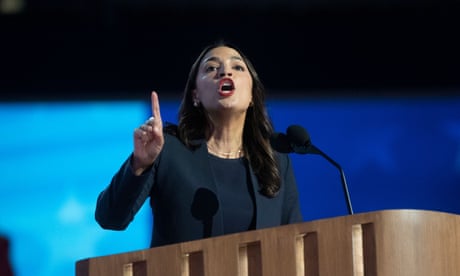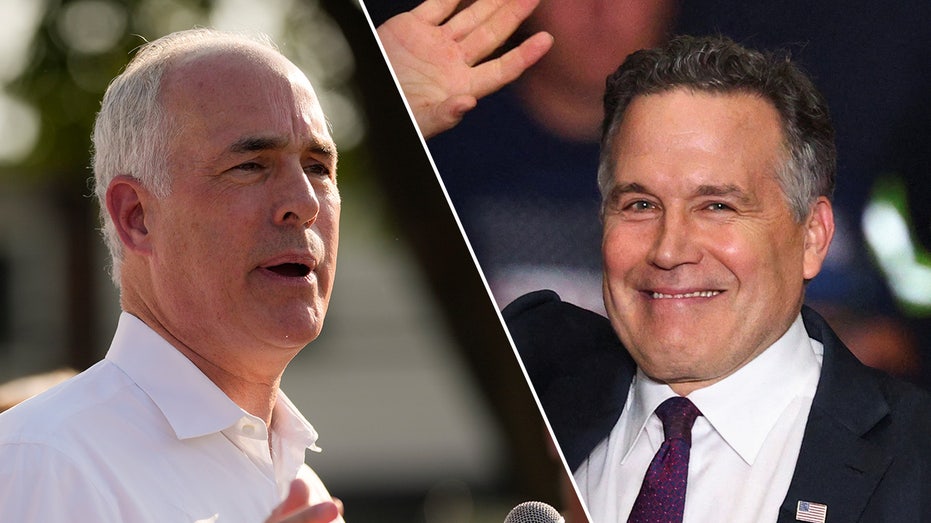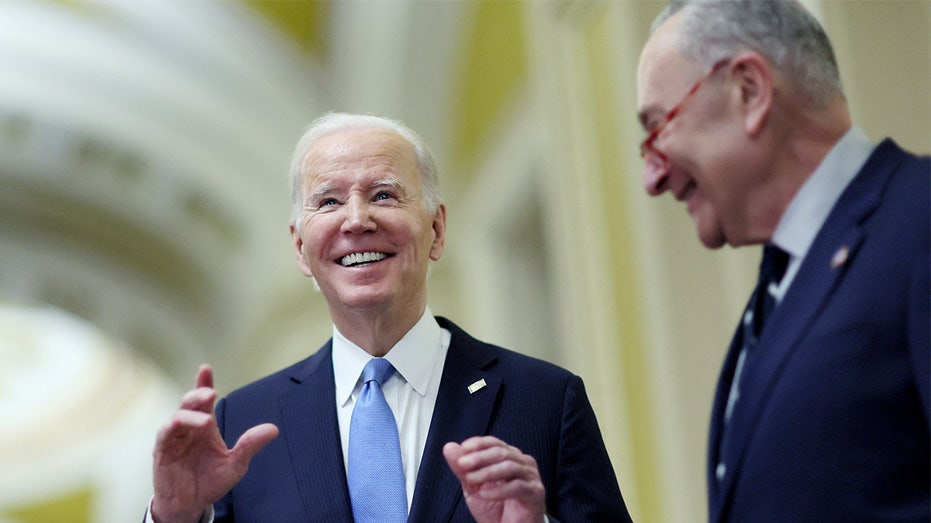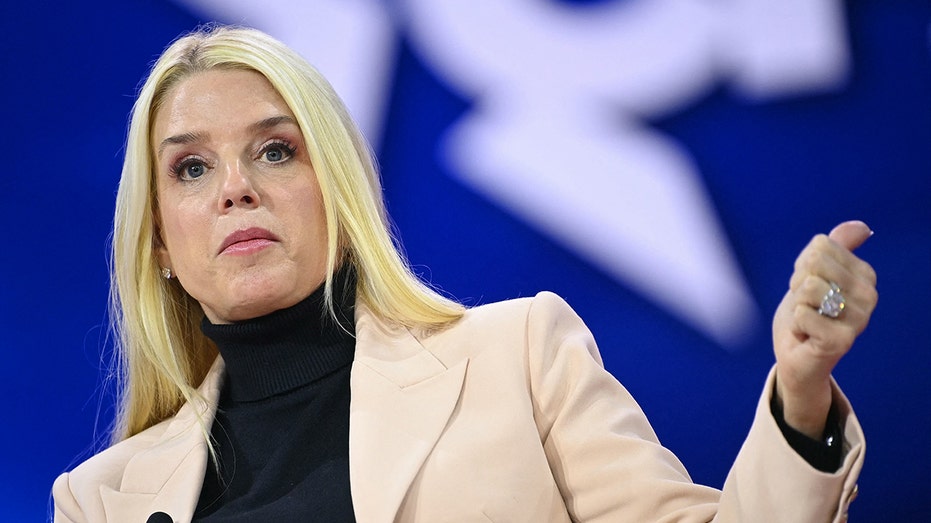- by foxnews
- 24 Nov 2024
AOC’s power comes from her outsider status. Can that endure? | Moira Donegan
AOC’s power comes from her outsider status. Can that endure? | Moira Donegan
- by theguardian
- 23 Aug 2024
- in politics

She spoke loudly and with confidence, gesticulated broadly, and returned, several times over the course of her seven-minute remarks, to the struggles of working families. Alexandria Ocasio-Cortez, the congresswoman from New York and standard-bearer for the post-Bernie Sanders US left, may have been an unlikely choice for a lengthy primetime speech at the Democratic national convention's opening night. The last time she spoke at the Democratic convention, in 2020, she was given just a minute and a half, in which she indicted the party establishment from the left and endorsed Sanders' campaign for the nomination, which by then had failed.
But this time, the party showcased Ocasio-Cortez as one of its prime talents, and her rhetoric was starkly different. Though she focused her remarks on her trademark politics of class, emphasizing the struggles of whose who worry about "rent checks and groceries", she spoke, this time, in the Democrats' most comfortable terms. Ocasio-Cortez used to speak of the "working class". On Monday night, she praised Kamala Harris as "for the middle class because she is from the middle class".
The remarks, and Ocasio-Cortez's starring role at the convention, underscore both her own transformation in Washington DC and the uneasy integration of the US left into the Democratic coalition. Her presence signals not only that Washington has changed the leftist members of "the Squad" - including AOC as well as the likes of Ilhan Omar, Rashida Tlaib and Ayanna Pressley - but also that the left's arrival in Washington has changed the Democrats.
For one thing, it would have been easy for the Harris-Walz campaign to freeze her out. After all, AOC has not always been willing to play ball with the House Democratic leadership's agenda. She has withheld her vote on key legislative priorities, such as Joe Biden's infrastructure bill, frustrating the likes of Nancy Pelosi. And over the course of her time in Washington, she has frequently used Instagram Live, her preferred method of public communication, to sidestep the establishment media and address her constituents and supporters directly, often in ways that counteract the party's preferred messaging.
Most recently, she took to a livestream on 19 July to push back against the then growing number of high-profile Democrats who were calling on the president to drop out of the race, saying that she thought the ageing and embattled incumbent should continue his campaign. Biden dropped out just two days later. As the party rapidly coalesced around the vice-president, it seemed that AOC had made a dramatic miscalculation.
Another version of the Democratic party probably would have repaid these affronts with icy exclusion. But for the Democrats of 2024, AOC is an asset that they cannot afford to lose.
This is not only because of her youth, or the extreme force of her charisma - whatever the contradictions of her position, AOC remains an uncommonly powerful speaker, signaling the Democrats' shift to the future after their party had long been criticized for failing to develop younger talent and reflecting a stark contrast with the Republicans, whose millennial talent pool is overrepresented with charmless male grievance grifters and sex-obsessed creeps. But it is also because AOC has unique credibility with two pools of voters that Democrats have alienated over the past year, voters they cannot win without: the left block that was animated by Bernie Sanders' campaigns in 2016 and 2020, and the young.
Biden's successful 2020 coalition relied heavily on these voters - from the far-left Bernie supporters, who largely put aside their complaints about their hero's treatment by the party to support Biden against a second Trump term, and young voters, who had similarly bucked historical trends to deliver an uncommonly high turnout for their age cohort.
These voters, however, have drifted from the Democrats more recently. Some were turned off by Biden's distaste for abortion; many felt that his age disqualified him, and found the ageing president an untenable vehicle for their future aspirations. But many from both of these camps began drifting away from the Democratic ticket not only because of the particular weaknesses of Biden as a candidate - they were driven away by moral outrage at his administration's support for Israel's genocidal war on Gaza. These are voters who will not be so easily won back by a change of candidate; many of them are still waiting to see a change of policy.
AOC is perhaps uniquely positioned, among the major Democrats who have quickly lined up to serve as Harris surrogates, to reach these voters. But her cooperation with the Democratic establishment could also threaten her credibility with parts of the left that define themselves by their opposition. At her speech on Monday, Ocasio-Cortez, an outspoken critic of the war, said that Harris was "working tirelessly to secure a ceasefire". The Harris-Walz camp will likely use the clip in campaign promotions targeted at young voters. It is a valuable image for them. It is not yet clear what concessions AOC extracted in exchange for it.
How long can Ocasio-Cortez walk this tightrope? Her career has been defined by her status as an insurgent critic of the party. But this position, which has long been AOC's source of moral authority, may become a victim of her own success. She can't keep claiming to be an outsider in a party that has rapidly reshaped itself in her image. But then again, it is her credibility with the left - her ability to claim status as an outsider - that is the very source of her influence.
AOC's mentor, Bernie Sanders - who campaigns as an independent, even though he has long caucused with the Democrats - has been able to maintain his distance from party leadership, showing uncommon integrity and consistency. But this stance, though it has won Sanders many moral and rhetorical victories, has largely excluded him from winning legislative ones. AOC seems to be taking a different track.
She is embarking, instead, on what for American leftists is something of a novel path: an effort to join a governing coalition - and to take on the ambivalent responsibilities of real power.
- by foxnews
- descember 09, 2016
Italy expected to draw travelers by the millions as Pope Francis kicks off Holy Year
The 2025 Jubilee will bring tourists to the Vatican, Rome and Italy to celebrate the Catholic tradition of patrons asking for forgiveness of sins. Hope will be a central theme.
read more





